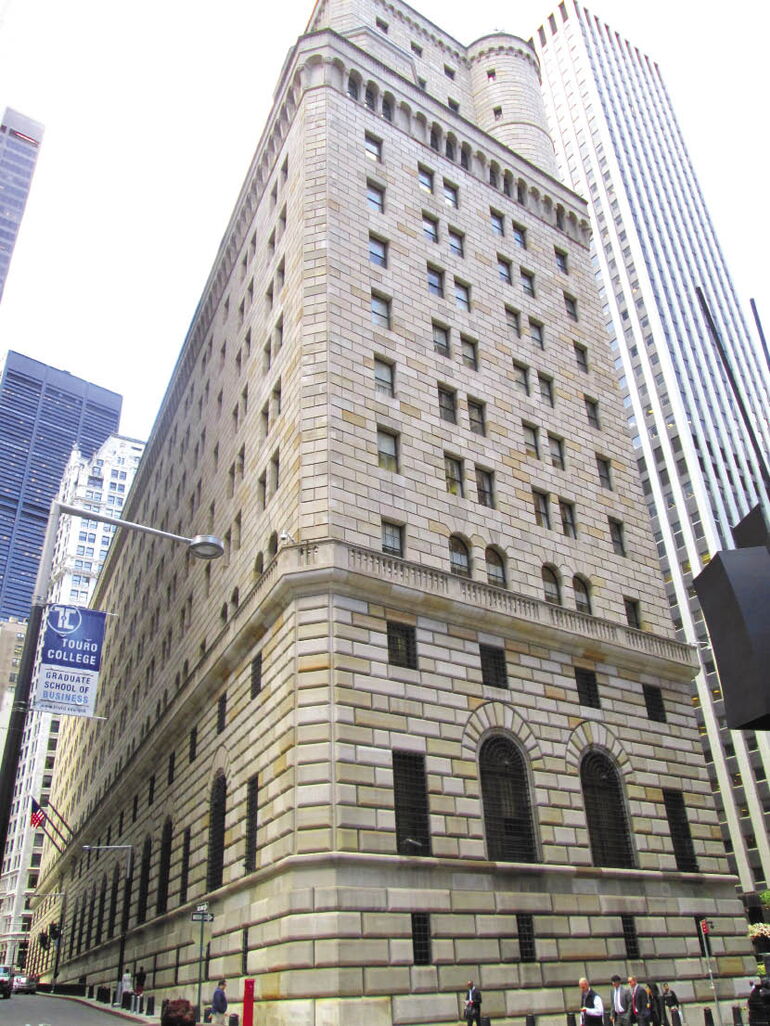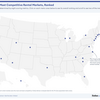Processing Your Payment
Please do not leave this page until complete. This can take a few moments.
-
News
-
Editions
-
- Lists
-
Viewpoints
-
HBJ Events
-
Event Info
- 2024 Economic Outlook Webinar Presented by: NBT Bank
- Best Places to Work in Connecticut 2024
- Top 25 Women In Business Awards 2024
- Connecticut's Family Business Awards 2024
- What's Your Story? A Small Business Giveaway 2024 Presented By: Torrington Savings Bank
- 40 Under Forty Awards 2024
- C-Suite and Lifetime Achievement Awards 2024
- Connecticut's Health Care Heroes Awards 2024
-
-
Business Calendar
-
Custom Content
- News
-
Editions
View Digital Editions
Biweekly Issues
- April 15, 2024
- April 1, 2024
- March 18, 2024
- March 4, 2024
- February 19, 2024
- February 5, 2024
- January 22, 2024
- January 8, 2024
- Dec. 11, 2023
- + More
Special Editions
- Lists
- Viewpoints
-
HBJ Events
Event Info
- View all Events
- 2024 Economic Outlook Webinar Presented by: NBT Bank
- Best Places to Work in Connecticut 2024
- Top 25 Women In Business Awards 2024
- Connecticut's Family Business Awards 2024
- What's Your Story? A Small Business Giveaway 2024 Presented By: Torrington Savings Bank
- 40 Under Forty Awards 2024
- C-Suite and Lifetime Achievement Awards 2024
- Connecticut's Health Care Heroes Awards 2024
Award Honorees
- Business Calendar
- Custom Content
TNB seeks to become state’s newest bank in face of Fed delays
 PHOTO | WIKIMEDIA COMMONS/BEYOND MY KEN
An upstart bank looking to launch in Norwalk is waiting for regulatory approval from the Federal Reserve Bank of New York (shown above).
PHOTO | WIKIMEDIA COMMONS/BEYOND MY KEN
An upstart bank looking to launch in Norwalk is waiting for regulatory approval from the Federal Reserve Bank of New York (shown above).
If TNB USA Inc. bank opened tomorrow, there would be no branches, tellers or ATMs.
Connecticut’s newest bank, to be based in Norwalk, would exist only as a set of offices where some of the state’s biggest chunks of money would be managed in search of stable returns for entities like money market funds, towns and universities.
“It’s a wholesale operation; it’s for large investors, not for individuals,” TNB CEO James McAndrews said of the bank.
Although there would be no retail operations for TNB, Connecticut citizens could indirectly reap the benefits of the bank’s activities. Money market funds and nonprofits like Yale University and community foundations could see stable revenue even in challenging times. Cities and towns could count on their cash to generate funds to bolster services — or even lower taxes.
All of those big pools of money would be safer than in traditional banks because the money would be kept on the books of the Federal Reserve, the nation’s central banking system.
“The mission of the bank is to mediate the safety and earnings of reserves to institutional depositors,” McAndrews said. “TNB would make sure their earnings were high, and very safe.”
But don’t expect to be seeing those higher returns for your favorite nonprofit or town anytime soon – TNB has been in a holding pattern since it first launched in 2017.
“Unfortunately, from our standpoint and from the standpoint of many potential customers of TNB, we are dormant at the current time,” McAndrews said.
TNB’s “narrow bank” concept, which allows it to pass through the central bank’s interest payments to its clients, has stirred interest in the highest ranks of banking regulation.
On Feb. 7, the state Banking Department issued an 18-month extension on TNB’s application, pending confirmation from the Federal Reserve Bank of New York that it would establish a master account for TNB, a crucial step in creating the venture.
TNB and the New York Fed have been exchanging terse letters since 2017 on the status of the account, as the Fed hammers out new rules on the legality of the “narrow bank” concept.
Recession-era change offers blueprint
The rules change that brought TNB into being started with a shift in Federal Reserve policy just prior to the Great Recession of 2008, when Congress acted to allow Federal Reserve banks to pay interest on reserves.
The idea originated in the 1990s and was signed into law as part of the Financial Services Regulatory Relief Act of 2006. Federal Reserve Board Gov. Laurence H. Meyer explained the advantages in 1999 testimony before a House committee.
“Because required reserve balances do not currently earn interest, banks and other depository institutions employ costly procedures to reduce such balances to a minimum. The cost of designing and maintaining the systems that facilitate these reserve-avoidance techniques represent a significant waste of resources for the economy,” Meyer said. “In addition, because some small banks do not have a sufficient volume of deposits to justify these costs, current reserve avoidance techniques tend to place smaller institutions at a competitive disadvantage.”
McAndrews, who worked as a researcher at the Federal Reserve banks of Philadelphia and New York for 28 years, saw an opportunity in the policy change, which was implemented in October 2008. He saw that banks were keeping the interest payments for themselves.
“One of the things that was so troubling to a lot of people was the fact that the interest on reserves was not being paid to depositors,” McAndrews said. “I realized that a private bank could be created that would serve the needs of these investors. … TNB was created to fulfill this role.”
With partners including Norwalk-based investment manager Gene Park, McAndrews formed TNB USA Inc. and obtained a temporary authorization from the state Department of Banking as an uninsured bank in August 2017.
TNB’s application drew some media attention in part due to the rarity of a new bank being formed in the state. The last “regular” bank chartered in Connecticut was Start Community Bank, which opened in 2010 and now operates as New Haven Bank. The last new bank of any kind was Voya Institutional Trust Co., a Wilton-based firm that launched in 2014.
TNB’s founders chose Connecticut in part because of the state’s “very sophisticated” banking regulators who are experienced in dealing with complex entities and high finance due to the state’s many hedge funds and other financial firms, McAndrews said.
“In addition to an excellent department, the Connecticut banking law was very clear and had been in existence for decades,” he added, referring to statutes that pertain to narrow banks. “That portion of the law was very appropriate for TNB’s business model.”
Banks like TNB are referred to as “narrow” because their business models focus on a narrow slice of the market: Parking funds from institutional investors at Federal Reserve banks.
Under TNB’s model, a large institution would open an account and the bank would then park their money with the Fed, where it would earn interest. Minus a small percentage for TNB, that interest would then be passed on to the account holder.
Discouraging delays
Although earlier forms of narrow banks were credited with saving some institutions during the Great Depression of the 1930s, TNB’s business plan hit a snag when it applied for a master account with the New York Fed to launch its services.
After hearing nothing about its application for more than a year, TNB filed a lawsuit on Aug. 31, 2018, “to enforce the bank’s legal right to a master account,” McAndrews said. The Fed finally spoke in March 2019, advising that it was in the process of writing new regulations that related to TNB’s application and outlining its concerns about the business model.
Narrow banks could impact the larger economy by attracting more funds to the Fed and disrupting the larger banking markets, according to the Fed. Narrow banks could also poach major clients from regular banks, reducing their assets and making it harder for everyone to get loans. In a time of crisis, the appeal of narrow banks could crash the regular banking system, the Fed said.
“Narrowly focused depository institutions (pass-through investment entities or PTIEs) could theoretically attract a very large quantity of deposits from institutional investors,” reads the notice of proposed rulemaking issued by the Fed in 2019. “Deposits at PTIEs could significantly reduce financial stability by providing a nearly unlimited supply of very attractive safe-haven assets during periods of financial market stress.”
In 2020, the New York Fed successfully got TNB’s lawsuit dismissed on grounds that it was still deciding on the bank’s application. As of press time, the final ruling on TNB was still pending.
Meanwhile, the state banking department issued two extensions on TNB’s temporary certificate, with the third coming this February.
McAndrews and his team are still hoping for good news. In the meantime, he works as a consultant from his home in Philadelphia, “while we sit on our thumbs waiting for the Fed to move, so to speak.”
TNB’s experience with Connecticut banking regulators has been a bright spot in the experience, McAndrews said.
“The Department of Banking and Commissioner [Jorge] Perez have been extremely professional,” McAndrews said. “We are waiting for the Federal Reserve to make these rulings and move forward on our account application.”

2022 Giving Guide
This special edition informs and connects businesses with nonprofit organizations that are aligned with what they care about. Each nonprofit profile provides a crisp snapshot of the organization’s mission, goals, area of service, giving and volunteer opportunities and board leadership.
Learn more
Subscribe
Hartford Business Journal provides the top coverage of news, trends, data, politics and personalities of the area’s business community. Get the news and information you need from the award-winning writers at HBJ. Don’t miss out - subscribe today.
Subscribe
2024 Book of Lists
Delivering Vital Marketplace Content and Context to Senior Decision Makers Throughout Greater Hartford and the State ... All Year Long!
Read Here-
2022 Giving Guide
This special edition informs and connects businesses with nonprofit organizations that are aligned with what they care about. Each nonprofit profile provides a crisp snapshot of the organization’s mission, goals, area of service, giving and volunteer opportunities and board leadership.
-
Subscribe
Hartford Business Journal provides the top coverage of news, trends, data, politics and personalities of the area’s business community. Get the news and information you need from the award-winning writers at HBJ. Don’t miss out - subscribe today.
-
2024 Book of Lists
Delivering Vital Marketplace Content and Context to Senior Decision Makers Throughout Greater Hartford and the State ... All Year Long!
ABOUT
ADVERTISE
NEW ENGLAND BUSINESS MEDIA SITES
No articles left
Get access now
In order to use this feature, we need some information from you. You can also login or register for a free account.
By clicking submit you are agreeing to our cookie usage and Privacy Policy
Already have an account? Login
Already have an account? Login
Want to create an account? Register
Get access now
In order to use this feature, we need some information from you. You can also login or register for a free account.
By clicking submit you are agreeing to our cookie usage and Privacy Policy
Already have an account? Login
Already have an account? Login
Want to create an account? Register






0 Comments